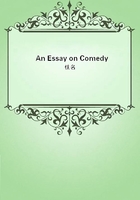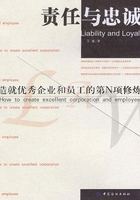In the sequence of cultural evolution the emergence of a leisure class coincides with the beginning of ownership. This is necessarily the case, for these two institutions result from the same set of economic forces. In the inchoate phase of their development they are but different aspects of the same general facts of social structure.
It is as elements of social structure -- conventional facts -- that leisure and ownership are matters of interest for the purpose in hand. An habitual neglect of work does not constitute a leisure class; neither does the mechanical fact of use and consumption constitute ownership. The present inquiry, therefore, is not concerned with the beginning of indolence, nor with the beginning of the appropriation of useful articles to individual consumption. The point in question is the origin and nature of a conventional leisure class on the one hand and the beginnings of individual ownership as a conventional right or equitable claim on the other hand.
The early differentiation out of which the distinction between a leisure and a working class arises is a division maintained between men's and women's work in the lower stages of barbarism. Likewise the earliest form of ownership is an ownership of the women by the able bodied men of the community.
The facts may be expressed in more general terms. and truer to the import of the barbarian theory of life, by saying that it is an ownership of the woman by the man.
There was undoubtedly some appropriation of useful articles before the custom of appropriating women arose. The usages of existing archaic communities in which there is no ownership of women is warrant for such a view. In all communities the members, both male and female, habitually appropriate to their individual use a variety of useful things; but these useful things are not thought of as owned by the person who appropriates and consumes them. The habitual appropriation and consumption of certain slight personal effects goes on without raising the question of ownership; that is to say, the question of a conventional, equitable claim to extraneous things.
The ownership of women begins in the lower barbarian stages of culture, apparently with the seizure of female captives. The original reason for the seizure and appropriation of women seems to have been their usefulness as trophies. The practice of seizing women from the enemy as trophies, gave rise to a form of ownership-marriage, resulting in a household with a male head.
This was followed by an extension of slavery to other captives and inferiors, besides women, and by an extension of ownership猰arriage to other women than those seized from the enemy. The outcome of emulation under the circumstances of a predatory life, therefore, has been on the one hand a form of marriage resting on coercion, and on the other hand the custom of ownership. The two institutions are not distinguishable in the initial phase of their development; both arise from the desire of the successful men to put their prowess in evidence by exhibiting some durable result of their exploits. Both also minister to that propensity for mastery which pervades all predatory communities.
From the ownership of women the concept of ownership extends itself to include the products of their industry, and so there arises the ownership of things as well as of persons.
In this way a consistent system of property in goods is gradually installed. And although in the latest stages of the development, the serviceability of goods for consumption has come to be the most obtrusive element of their value, still, wealth has by no means yet lost its utility as a honorific evidence of the owner's prepotence.
Wherever the institution of private property is found, even in a slightly developed form, the economic process bears the character of a struggle between men for the possession of goods.
It has been customary in economic theory, and especially among those economists who adhere with least faltering to the body of modernised classical doctrines, to construe this struggle for wealth as being substantially a struggle for subsistence. Such is, no doubt, its character in large part during the earlier and less efficient phases of industry. Such is also its character in all cases where the "niggardliness of nature" is so strict as to afford but a scanty livelihood to the community in return for strenuous and unremitting application to the business of getting the means of subsistence. But in all progressing communities an advance is presently made beyond this early stage of technological development. Industrial efficiency is presently carried to such a pitch as to afford something appreciably more than a bare livelihood to those engaged in the industrial process. It has not been unusual for economic theory to speak of the further struggle for wealth on this new industrial basis as a competition for an increase of the comforts of life, -- primarily for an increase of the physical comforts which the consumption of goods affords.
The end of acquisition and accumulation is conventionally held to be the consumption of the goods accumulated -- whether it is consumption directly by the owner of the goods or by the household attached to him and for this purpose identified with him in theory. This is at least felt to be the economically legitimate end of acquisition, which alone it is incumbent on the theory to take account of. Such consumption may of course be conceived to serve the consumer's physical wants -- his physical comfort -- or his so-called higher wants -- spiritual, aesthetic, intellectual, or what not; the latter class of wants being served indirectly by an expenditure of goods, after the fashion familiar to all economic readers.














